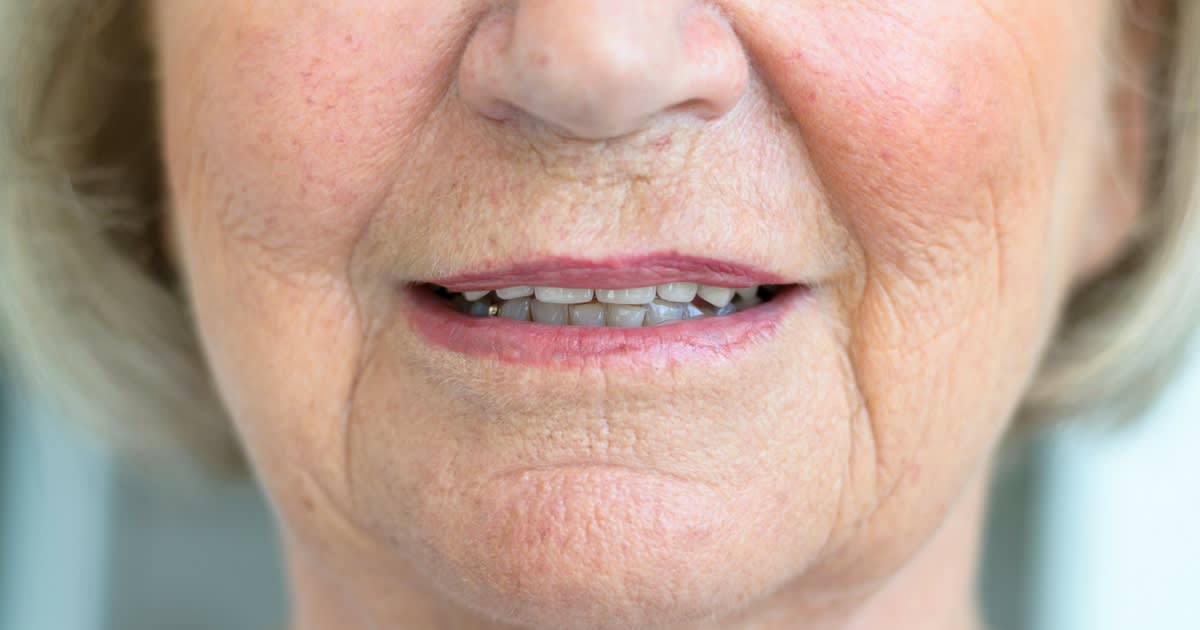Senior Oral Health: What to Know

There have been numerous advancements in the world of oral health over the last few decades, from increased education on the importance of dental care to the ever-evolving technology utilized for dental care. However, we cannot stop aging from altering our teeth and gums as we age. Teeth begin to darken because of changes to dentin – tissue below the enamel that makes up the tooth itself – while the mouth becomes dry due to reduced saliva flow. Years of chewing also take their toll, causing enamel to break down over time.
We become more susceptible to various oral and dental problems as we age. Though, many seniors tend to put their oral health on the back burner, especially as they continue to age. However, this makes it all the more important to continue to encourage them to take the time to take care of themselves and their oral health.
Potential Health Issues
A lack of attention to oral health can undoubtedly lead to problems focused on the mouth and teeth, but it can also have ramifications for more widespread disease throughout the body. Maintaining good oral health will benefit the teeth and mouth and prevent or reduce the impact of other systemic conditions.
Significant reasons to focus on oral hygiene maintenance include tooth decay, tooth loss, gum disease, heart disease, diabetes, pneumonia, and oral cancer. When oral hygiene is neglected, it is leaves room for many other airborne diseases to pass into the body. Since air must pass through the mouth to get to the lungs, bacteria present in the mouth increases the odds that those bacteria enter the lungs and cause an infection.
Improvement of Care
One of the major obstacles seniors face regarding receiving regular dental care is not having a proper facility that they are familiar and comfortable with, or having an overall lack of experience in receiving dental care. Regular visits to the dentists are essential, especially for older adults, whether its regular cleaning, oral exams, or even identifying potential issues in one’s dentures. In this regard it is important for these facilities to outreach towards seniors in order to inform them about dental care. Another step that can be taken is outreaching towards caretaking services. Of course, direct communication with their clients is vital. But taking the time to remind caretakers of the importance of maintaining good dental hygiene can make outreach efforts even more effective.
Additionally, some changes to lifestyle, such as brushing teeth at least twice a day using fluoride toothpaste, flossing and mouthwash to reduce dental plaque, cleaning dentures regularly, are easy to remember. Regular brushing and flossing can help reduce the number of bacteria in the mouth and thus reduce the chances that harmful bacteria enter the lungs and cause disease.
Elders should also limit, if not abstain from alcohol and tobacco use as it can increase the risk of oral and throat cancer, and should drink more water (at least eight 8-ounce glasses a day) to help reduce the risk of dry mouth.
Conclusion
Individuals of all ages often neglect oral and dental care. While they should be more of a priority for everyone, this is especially true for older adults as more susceptible to many health issues, including ones relating to poor oral and dental health. Simple steps to prevent them from happening can build and maintain an all-rounded oral hygiene for seniors.

Leave a Reply
Want to join the discussion?Feel free to contribute!